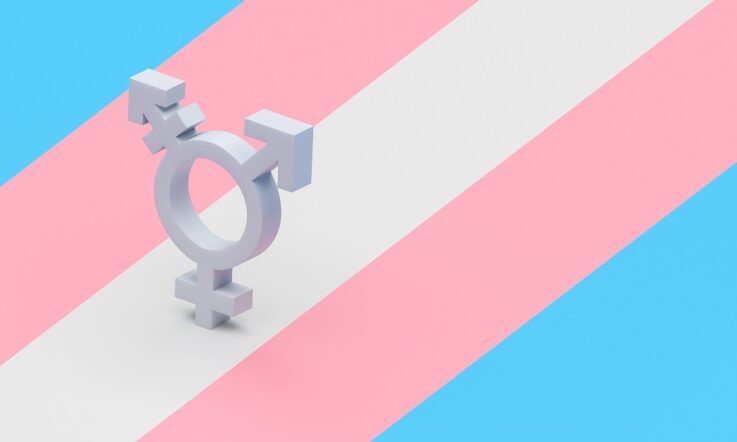Our latest Teacher’s Bookshelf features Becoming a Totally Inclusive School: A Guide for Teachers and School Leaders, written by Angeline Aow, Sadie Hollins and Stephen Whitehead.
In Chapter 9, the authors introduce the Continuum on Becoming a Totally Inclusive School – aimed at helping individuals and institutions identify where they are according to 6 stages of development. This exclusive extract for Teacher readers discusses the sixth and final stage, including examples of practice and some of the challenges.
Stage 6. Totally Inclusive – An Equitable and Just Institution
A Totally Inclusive, equitable and just institution is where all learners have access to the curriculum in learning spaces that continually strive to eliminate oppression. Educators do this by valuing intersectional identities and by treating each individual as full participants in their learning. Diverse voices are included in school-wide decision-making, and every individual is rightly treated with respect and dignity. With such interactions, individuals build social capital together and trust is a prerequisite for healthy risk-taking (Cox, 1995). With conviction, collaboration and goodwill, both civic culture and school culture thrive.
In this stage, the school’s systems and structures serve the most historically marginalised identities, and this is seen as a benefit for all learners. Policies articulate expectations and they don’t just sit on a shelf but are alive and kicking through shared understandings that shape and reflect organizational culture. Some may feel frustrated by what they perceive is a slow rate of organizational progress; however, they are sustained by the momentum gained, progress made, accountability measures in place and visible commitment from all. Others may feel challenged by the perceived fast pace of organizational progress; however, they feel supported to develop and have access to multiple learning pathways. There is an understanding that a perfect school does not exist, that conflict is healthy and that making progress consists of making mistakes that are learning opportunities. An inquiry-driven research culture is evident among both student and adult learners. Educators recognise that there can be sloppy mistakes when intentionality is low. However, there are also mistakes that lead to aha moments that can stretch them (Briceño, 2015).
A culture of ‘doing’ permeates and if harmony exists, individuals are more likely to question the status quo in order to keep evolving rather than becoming complacent and in danger of regressing. They embrace viewpoints that challenge them and accept non-closure and polarities of thinking. Most important, at this stage, the whole school community knows that they can achieve and sustain this work and celebrations of success further motivate the community towards achieving collective goals (Jackson, 2014).
Challenges at this stage can arise if a Totally Inclusive mandate is seen as a passing phase or educational trend instead of a genuine underlying core value for learning and teaching. Competing demands on organisational resources can also threaten to deter from this core work for those who have yet to fully commit to equitable practices. An example of this is schooling during a pandemic. While for some, this may seem to be a competing factor for a school’s developmental priority, a school at a Totally Inclusive Stage would ensure that these values are embedded into decision-making at all levels so that the most historically marginalised individuals and groups will continue to have access to learning and teaching. This example shows how Totally Inclusive values are at the heart of an organisation instead of an add-on.
Sustaining an institution at this stage requires a dynamic and cyclical approach to refining one’s systems and structures so that continuous evolution into better versions of itself is possible.
Examples of sustaining practices include the following:
- Honest and open feedback mechanisms
- Evaluation protocols to monitor progress and recalibrate for continuous school improvement
- Ensuring that decision-making is research-informed. Research is defined broadly to encompass academic publications, educator experiences and the collection of data ranging from student learning evidence to community perception surveys
- Quality assurance protocols are selected for their embedded DEIJ values. These are chosen to help guide, monitor and evaluate growth
- Deep implementation across systems, structures and policy is evident through consistency of practice, collective efficacy, skill development and continuous reflection (Jacobs and Alcock, 2017)
- Distributive leadership models encourage voice, choice and ownership of learning. Rigid hierarchical leadership structures have been dismantled
- School is authentic and vulnerable about its processes and constant growth
- Maintains a reputation for being a Totally Inclusive School and is able to act as a model for other schools to follow
A Totally Inclusive School continually collects and analyses data and revisits this continuum to ensure that the learning community understands what different stages look like to prevent regression. In short, the institution values monitoring for growth, and documenting and evidencing inclusive practices to help communicate milestones in transparent ways. The school also balances using internal methods to measure growth, with external methods to ensure that assessments are objective. Regular reporting to the school community identifies progress and strengths and celebrates the dynamic learning community in which evolving identities can thrive.
Stay tuned: Two of the authors of the book – Angeline Aow and Sadie Hollins – will be joining us for a Teacher podcast next month to talk in detail about the ‘Continuum on Becoming a Totally Inclusive School’ and its 6 stages of development, and share examples of what each stage may look like in practice.
References
Briceño, E. (2015, November 23). Why Understanding These Four Types of Mistakes Can Help Us Learn. KQED. www.kqed.org/mindshift/42874/why-understanding-these-four-types-of-mistakes-can-help-us-learn.
Cox, E. (1995). Lecture 2 — Raising Social Capital. The Boyer Lectures. Melbourne.
Jackson, B.W. (2014). Chapter 9. Theory and Practice of Multicultural Organization Development. In Brenda B. Jones and Michael Brazzel (Eds.), The NTL Handbook of Organization Development and Change: Principles, Practices, and Perspectives (pp. 175–192). Wiley.
Becoming a Totally Inclusive School: A Guide for Teachers and School Leaders is published by Routledge and is available to purchase via this link.



